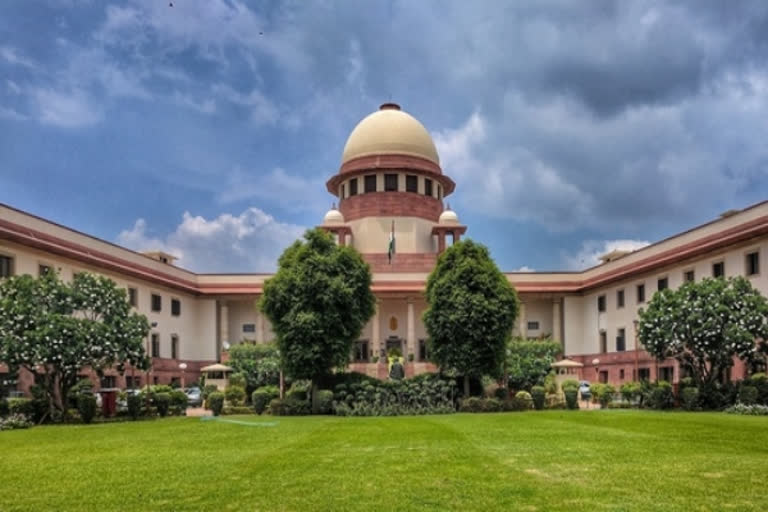New Delhi: A Hindu organisation has moved the Supreme Court to challenge a provision of a 1991 law that provides for maintaining the "religious character" of holy structures as existed on August 15, 1947, in order to reclaim disputed religious sites through litigation, other than the Ram Janmabhoomi in Ayodhya.
The PIL filed by 'Vishwa Bhadra Pujari Purohit Mahasangh' sought court directions to declare Section 4 of the 1991 Act as ultra vires and unconstitutional.
The petitioner's challenge to Section 4 of the Places of Worship (Special Provisions) Act, 1991, gains significance in the case of Kashi and Mathura where two mosques stand. The law does not allow the conversion of a temple into a mosque and vice versa.
The plea contended that the Act has barred the right and remedy against encroachment made on religious property of Hindus by exercise of power by followers of another faith.
Also read: Delhi COVID-19 situation: BJP, Cong thank SC for showing mirror to AAP govt over shortcomings
"The result is that Hindu devotees cannot raise their grievance by instituting any suit in a civil court or invoke the jurisdiction of the High Court under Article 226 of the Constitution against high-handedness and will not be able to restore back the religious character of Hindu endowments, temples, mutts etc from hoodlums if they had encroached upon such property before August 15, 1947 and such illegal and barbarian act will continue in perpetuity," said the petition.
"The Parliament while enacting the Act has excluded the property in dispute at Ayodhya for which Hindus have been fighting.The top court in November 2019, through a unanimous 5-0 verdict, had granted the disputed land in Ayodhya for the construction of the Ram temple, and ordered that a five-acre plot must be found for construction of a mosque.
The petitioners claim that the Act infringes the right of worship of Hindus guaranteed by Article 25 of the Constitution. "Deprives the right of Hindu community under Article 26 from maintaining and managing the religious properties belonging to deity usurped by members of the other community. Takes away the remedy of Hindus to take back the places of worship and property attached thereto through court, which originally belong to a deity, and worship is being continuously performed thereat by devotees in a number of way," it averred.
Also read: COVID-19: 4-month-old recovers, discharged from Vizag hospital after 18-days on ventilator
The petitioners urged the Supreme Court to declare Section 4 of Act of 1991 as ultra vires to Article 14, 15(1), 25 and 26 of the Constitution and consequently void.
IANS report



